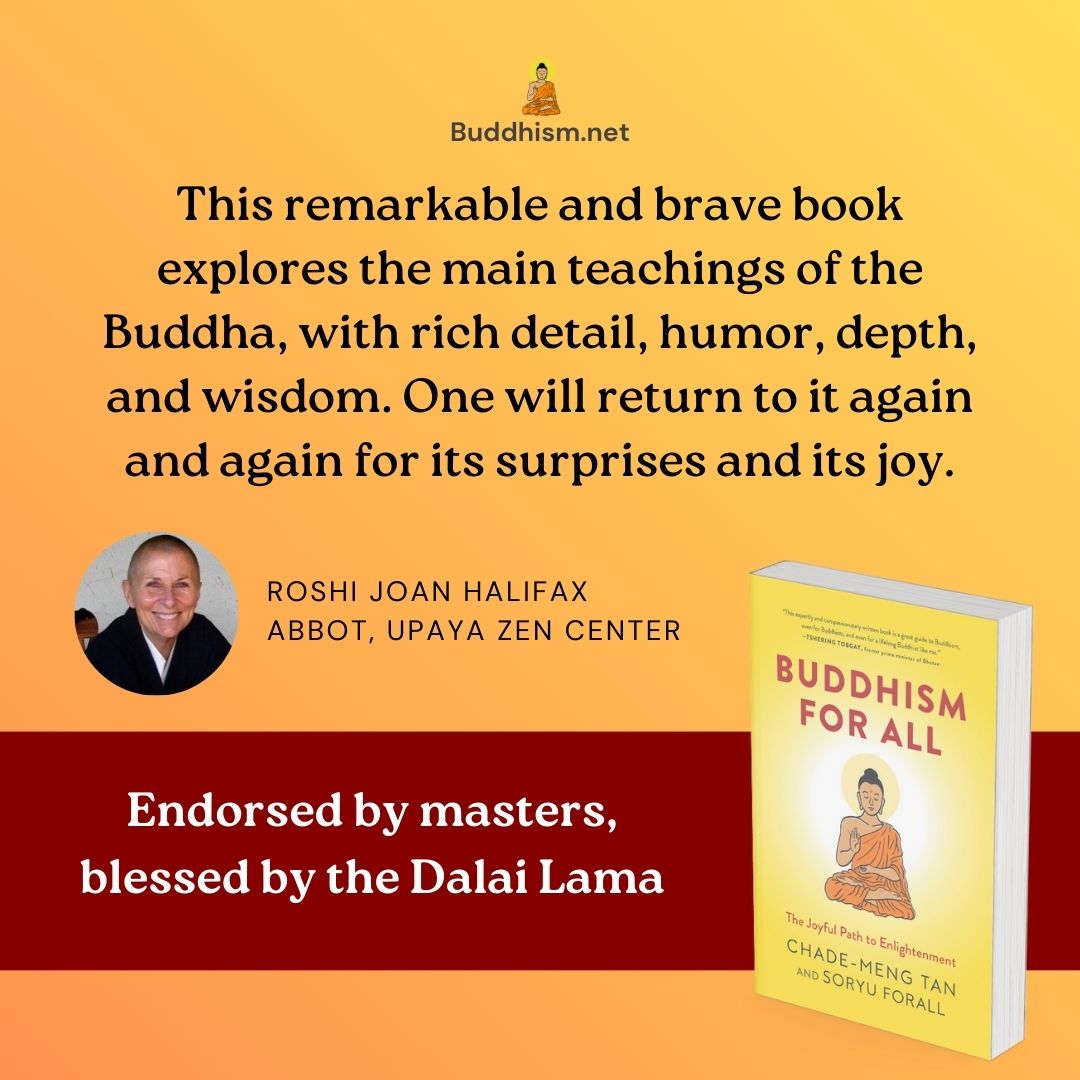
The Buddha’s teachings on dukkha (suffering) is somewhat more nuanced than we talked about earlier (here). In an important discourse[1], the Buddha clarified that there are three types of dukkha:
- Dukkha due to physical or emotional pain
- Dukkha due to “formations”
- Dukkha due to change[2]
The first and third seem obvious, and there appears to be consensus among all Dharma teachers on what they mean. The first one, “dukkha due to pain” simply means when you’re in pain, you’re suffering. Like, duh. The third one, “dukkha due to change” means if you are not in pain now, things are going to change and you will suffer later. We are familiar with this by now.
The middle one, “dukkha due to formations (saṅkhāra)” is the one that is nuanced because it is open to interpretation. It is one of those frustrating cases in the ancient texts where the Buddha said something in a discourse to his disciples, and presumably everybody understood, so he did not elaborate. Saṅkhāra, usually translated as “formations”, literally means “together-making” or “together-doing”[3], so saṅkhāra can mean “that which has been put together” or “that which puts together”. You can poetically say that saṅkhāra is both a noun and a verb: it points to both what has been constructed, and the process of constructing it. For that reason, Soryu prefers the translation “constructions”.[4]
An authoritative interpretation of “dukkha due to formations” comes from the highly influential 5th-century Indian Buddhist scholar, Buddhaghosa, in his book, the Visuddhimagga. He interpreted it as dukkha due to all phenomena being “oppressed by rise and fall” even when you are in a state of equanimity.[5] The problem with this interpretation is the third type of dukkha, “dukkha due to change” is entirely a subset of it, and that’s why Buddhaghosa had to swap their order in his book (presumably that is the reason, he did not say). I myself find his explanation very unsatisfactory.
I know of three other complementary interpretations of “dukkha due to formations” that make more sense to me. My favorite one refers to it as suffering due to the oppression of having to maintain things in a (temporarily) pleasant state. For example, if you have a body or a relationship or a social status or a possession you are happy with, you need to put in a lot of time, effort and expense to maintain it, and that is dukkha. This interpretation aligns the three types of dukkha into a very nice logical continuum. In this continuum, dukkha is:
- You are in pain (physical or emotional).
- If you are not in pain, you have to maintain the conditions to keep you not in pain.
- You will eventually lose.
To put it in a funnier way: pain sucks, having to fix it sucks, and no matter what you do to fix it, it will eventually fail, and that sucks. This is why liberation is the only true solution.
Another interpretation of “dukkha due to formations (saṅkhāra)” requires saṅkhāra to be interpreted as “mental formation”, which is a valid interpretation that occurs frequently in the ancient texts. In this interpretation, after experiencing physical or emotional pain, the mind laments and ruminates, constructing a host of painful thoughts involving “why me?”, “this should be happening” and “this should not be happening” in reaction to the initial pain, thus multiplying the suffering.
In the ancient texts, the Buddha compared this type of suffering to being hit by two arrows.[6] Experiencing pain (physical or emotional) is like being hit by an arrow. In reaction to pain, many people also lament and ruminate, which the texts describe as, “he sorrows, grieves, and laments; he weeps beating his breast and becomes distraught.” That doubles his suffering. The Buddha compares that to being hit by a second arrow, and according to medieval commentaries, the second arrow is only an inch or so away from the first, which means the second arrow inflicts far more pain that the first one. The Buddha taught that with the right mental training, it is possible to be totally free from at least that second arrow of suffering. Hence, in this interpretation, the dukkha due to (mental) formations is this second arrow.

The third interpretation of dukkha due to formations is actually quite profound, and it is one that has been articulated by some masters I know of, including the Dalai Lama[7] and our very own Soryu. This one requires us to recognize that basically everything we experience in the world is a “formation” (saṅkhāra), which means that everything arises from conditions and cease when those conditions end, and therefore, they can never truly be relied on. Relying on them is like a drunk man trying to stay upright by relying on an unstable stack of heavy barrels, he’s not going to have a particularly good time. This of course relates closely to the etymology of dukkha as “unstable” or “not standing well” (which we previously mentioned, here). Fundamentally, reliance on formations is always unsatisfactory, always arises from the ignorance that all formations are unreliable, and always ends in suffering.
Based on the above interpretation, Soryu ties together all three types of dukkha this way:
We go broke, we get sick, we are betrayed. We experience pain. Therefore, we are insecure.
We work hard to keep things good, to create things to protect ourselves. But this work does not ultimately work, and these things fall apart. Therefore, we are more deeply insecure.
Everything is unstable. Everything outside of ourselves is unstable. Everything inside of ourselves is unstable. We have nowhere to stand. Therefore, we are even more deeply insecure.
This is suffering.
In any case, whichever interpretation of “dukkha due to formations” you choose (or all of them), the above makes clear that dukkha is, in its broadest sense, the inherent unsatisfactoriness that arises from grasping to any phenomenon.
Activities
- Reflect on this post with Angela:
- Dare we say that everything in modern society is invented to combat dukkha of some sort. This list includes: shoes, coffee, chocolates, washing machines, elevators, comfortable gaming chairs etc. But, do they really uproot dukkha at its root? Dukkha is the unsatisfactoriness we experience, ranging from the shallow (“it’s too hot/too cold”) to the deepest, all pervasive suffering that is there because we are here. It is easy to fall into futile hopelessness, pessimism, depression, nihilism if we focus on dukkha. Thankfully Buddhism presents 3 broad uplifting solutions. First, that there is an end of dukkha and a path that if we practice, can lead to the end of dukkha – the Noble Eightfold Path. Second, we turn attention towards how to help others transcend suffering – the practice of compassion. Third, we focus on cultivating our basic innate goodness, the enlightened mind.
- What is dukkha, or unsatisfactoriness to you? How do you deal with dukkha or unsatisfactoriness in your life?
References
[1] Saṃyutta Nikāya 45.165.
[2] The Pali terms are dukkha-dukkhatā, saṅkhāra-dukkhatā and viparinama-dukkhatā, respectively.
[3] Bhikkhu Bodhi, Anicca Vata Sankhara. Access to Insight (BCBS Edition), 16 June 2011, https://www.accesstoinsight.org/lib/authors/bodhi/bps-essay_43.html
[4] I have a lot of sympathy for that preference partly because early Chinese Buddhist masters decided to translate it as xíng (行), which most commonly means “to move”, but sometimes means “elements” (as in the “five elements” as understood by the ancient Chinese: metal, wood, water, fire, and earth), so it appears that ancient Chinese masters also wanted to emphasize the aspect of saṅkhāra as a process. Nevertheless, “formations” is the most common translation and that is why we are using it.
[5] Visuddhimagga, XVI 34-35.
[6] Saṃyutta Nikāya 36.6.
[7] Dalai Lama, The Four Noble Truths. Thorsons (1998).
Artwork by Colin Goh and Natalie Tsang.

